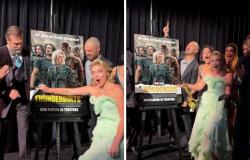
“The seeds of the XIX classics are dissolved in the text, and some are explicit, such as The Regenta o War and peace”, Says Domingo Ródenas de Moya in his review of our book of the week, A drop of affectionby José María Guelbenzu, also a critic of Babelia and author of 26 novels (10 of them from the police series about Mariana de Marco Judge). Not surprisingly, this narrative is a tribute to the modern novel, as defined in the nineteenth century, since in it they are both in the components of the plot and in style, in the mechanisms and in the narrative scaffolding. “Probably one of Guelbenzu’s best novels,” says Ródenas de Moya.
Other books reviewed this week by our experts are The summer houseby Masashi Matsuie, an unbeatable narrative in terms of manual of advice on good architecture that will like to work in a study; The sweet existenceby Milena Busquets (also in Catalan: The sweet existence), A novel in which, “without knowing very well why, we feel accomplices of your faith in love, the only force capable of moving a mountain,” according to Anna Caballé; Manual for obediencea metaphor for the guilt in which its author, Sarah Bernstein, describes how the life of a woman accustomed to serving others is further diluted when she moves to help her brother after her divorce; Soldier SailorWomen’s Prize for Fiction, where Claire Kilroy writes a kind of prayer or hyperbolic poem that a first -time mother directs her son.
This week we also bring various criticisms of good non -fiction books. Panama’s collapseby Fernando Berguido, it is a necessary analysis now that Trump shows an expansionist interest in the Panama Canal about the situation of the Central American country after the end of the US dictatorship and invasion of 1989; The happy recklessessay in which its author, Ferran Sáez Mateu, recovers one of his recurring obsessions, the good savage; and The favorite dead girl of allby Beatriz García Guirado, who addresses in his latest novel that perhaps it was the most famous crime of Los Angeles, that of Elizabeth Short, murdered at age 22 and that has gone down in history as the Case of the Black Dalia. For its part, in Borges by Pigliathe lessons that Ricardo Piglia taught on Argentine public television and that serves Edgardo Dobry to collect in his review other lessons about the author of The Aleph;
Finally, we also highlight the interesting article written by Sergio C. Fanjul, which analyzes the proliferation of all kinds of books (both essays and novels) about fungi, living beings that even serve as a metaphor to survive wild capitalism.





